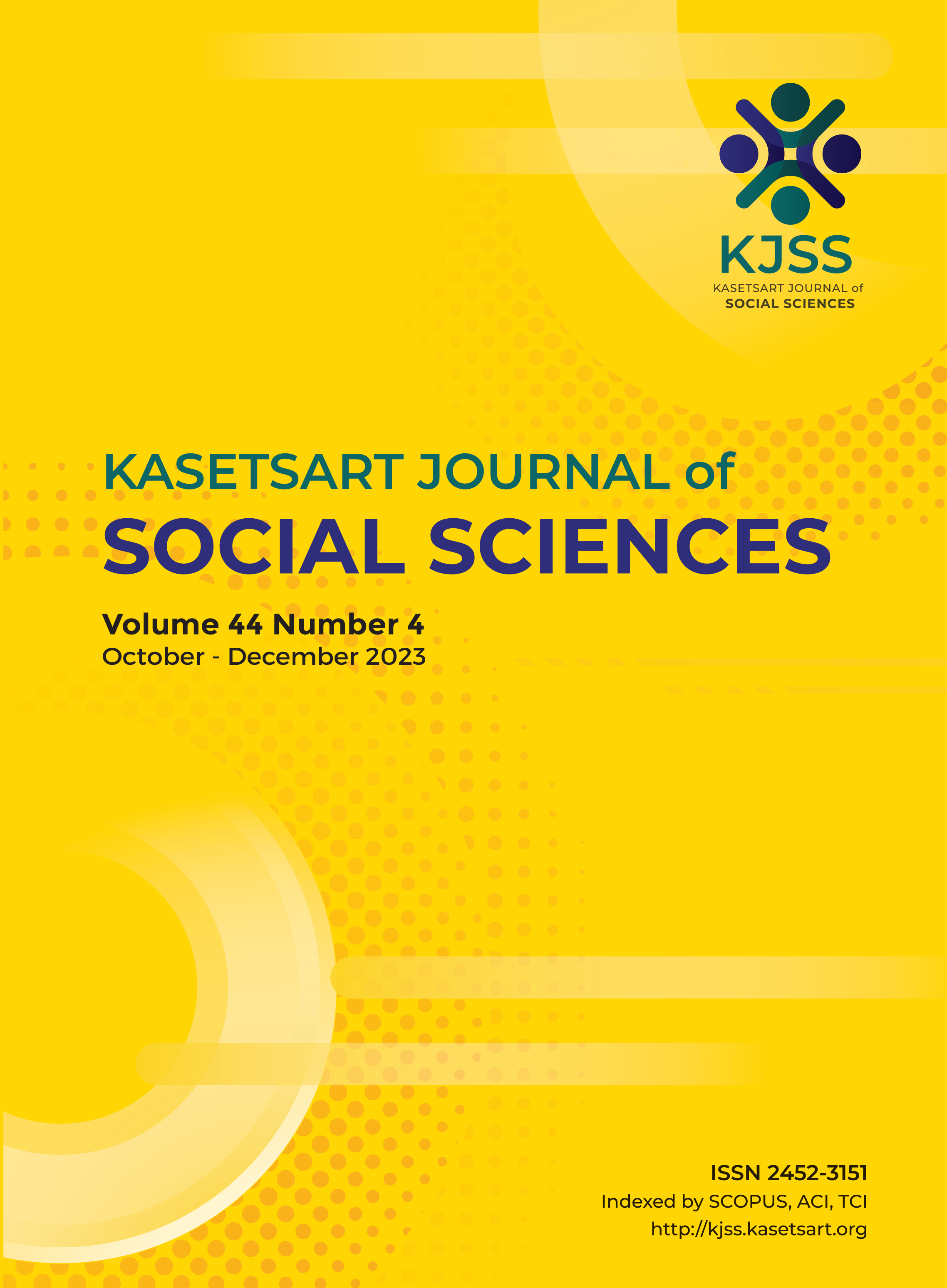Exploring COVID-19 anxiety, resilience, and consumer lifestyles of rural and urban Thai consumers
คำสำคัญ:
anxiety, COVID-19, resilience, rural, urbanบทคัดย่อ
The COVID-19 pandemic has caused health, economic and social isolation anxiety. This research attempts to explore the effects of these three types of COVID-19 anxiety (i.e., health concerns, economic hardship, and social restrictions) on consumer lifestyles with resilience as the moderating effect during the COVID-19 pandemic. In addition, we investigated participants in both rural and urban areas to respond to the growing concern about the different effects of the pandemic in those areas. Employing questionnaire survey, the data of 2,000 respondents was drawn from the population of Thai consumers aged 18–75 years old. Quota sampling method was applied in the data collection process. The proportion of quota was calculated according to the number of Thai populations separated by gender, age, and regional groups. The results show that urban residents have higher levels of health and economic anxiety, but lower social-restriction anxiety than their rural counterparts. Health anxiety has a positive effect on urban consumers’ lifestyles. In contrast, social-restriction anxiety has a significant impact on rural consumers’ lifestyles. Moreover, resilience is the key factor that impacts both urban and rural consumers. These findings confirm the need to propose different treatments and public policies for rural and urban consumers.
ดาวน์โหลด
เผยแพร่แล้ว
รูปแบบการอ้างอิง
ฉบับ
ประเภทบทความ
สัญญาอนุญาต

อนุญาตภายใต้เงื่อนไข Creative Commons Attribution-NonCommercial-NoDerivatives 4.0 International License.
This is an open access article under the CC BY-NC-ND license http://creativecommons.org/licenses/by-nc-nd/4.0/










